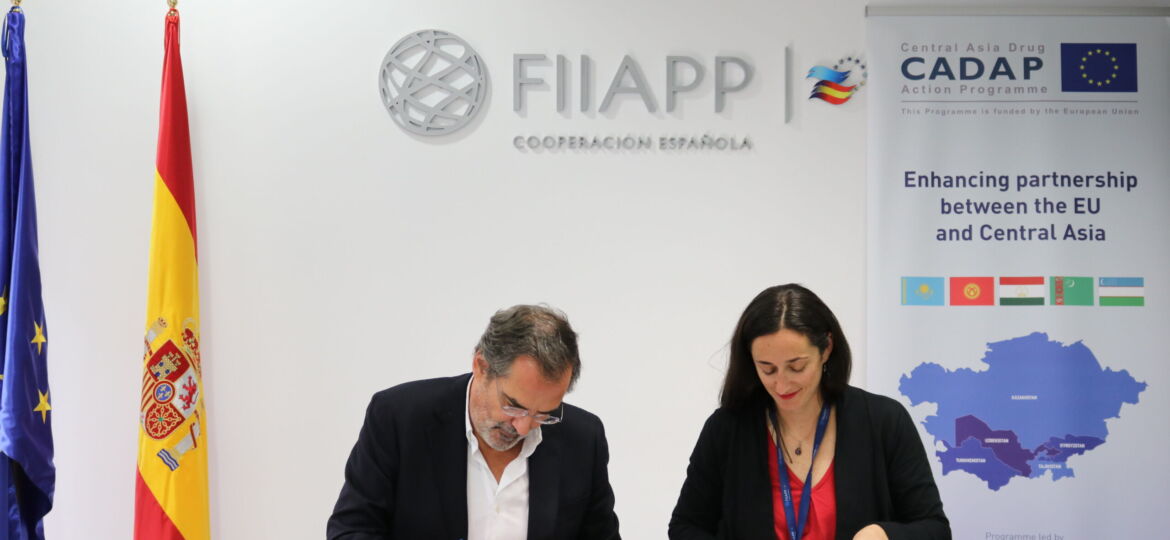
A working arrangement was signed on February 15 in Madrid between FIIAPP – International and Ibero-American Foundation for Administration and Public Policies and the European Monitoring Centre for Drugs and Drug Addiction (EMCDDA) in order to train and update the knowledge and experience of Central Asian experts in charge of recording and analysing data on addictions.
“The European drugs problem is increasingly linked to, and influenced by, global developments, underlining the need to identify trends occurring in EU neighbouring countries and worldwide. Our support for EU regional cooperation on drugs in Central Asia spans over 20 years and we look forward to continued collaboration with our partners in the region to develop science-based drug monitoring, policies and practice”, says Alexis Goosdeel, EMCDDA Director. “We are delighted to sign this working arrangement with FIIAPP today, which will allow us to support activities under the CADAP 7 programme, such as facilitating the exchange of knowledge between experts and offering internships at the EMCDDA for Central Asian experts”, he adds.
“Any public drug policy that wants to get to the heart of the problem needs solid data: who is using, where, what kind of substances…. All this information is crucial to tackle a problem that may appear to be individual but is basically social, which leads us to the epidemiology of drugs,” explains Ernest Robelló, CADAP 7 Director Through national early warning systems, drug observatories facilitate the detection, exchange of information, assessment and response to the emergence of new substances that may pose a public health problem.
During the previous phases of the programme, EMCDDA data monitoring and reporting practices have been introduced in Central Asian countries, and training and other forms of assistance have been provided. These include: the five key indicators and other core indicators of drug epidemiology, the creation of national focal points/national drug observatories, the production of national drug situation summaries and of annual national reports.
In this phase of the programme, the collaboration with the EMCDDA foresees, among other things, the participation of Central Asian experts in technical meetings within the European Union, as well as study visits of Central Asian representatives to the EMCDDA headquarters in Lisbon to improve information analytical capacities and facilitate information exchange.


